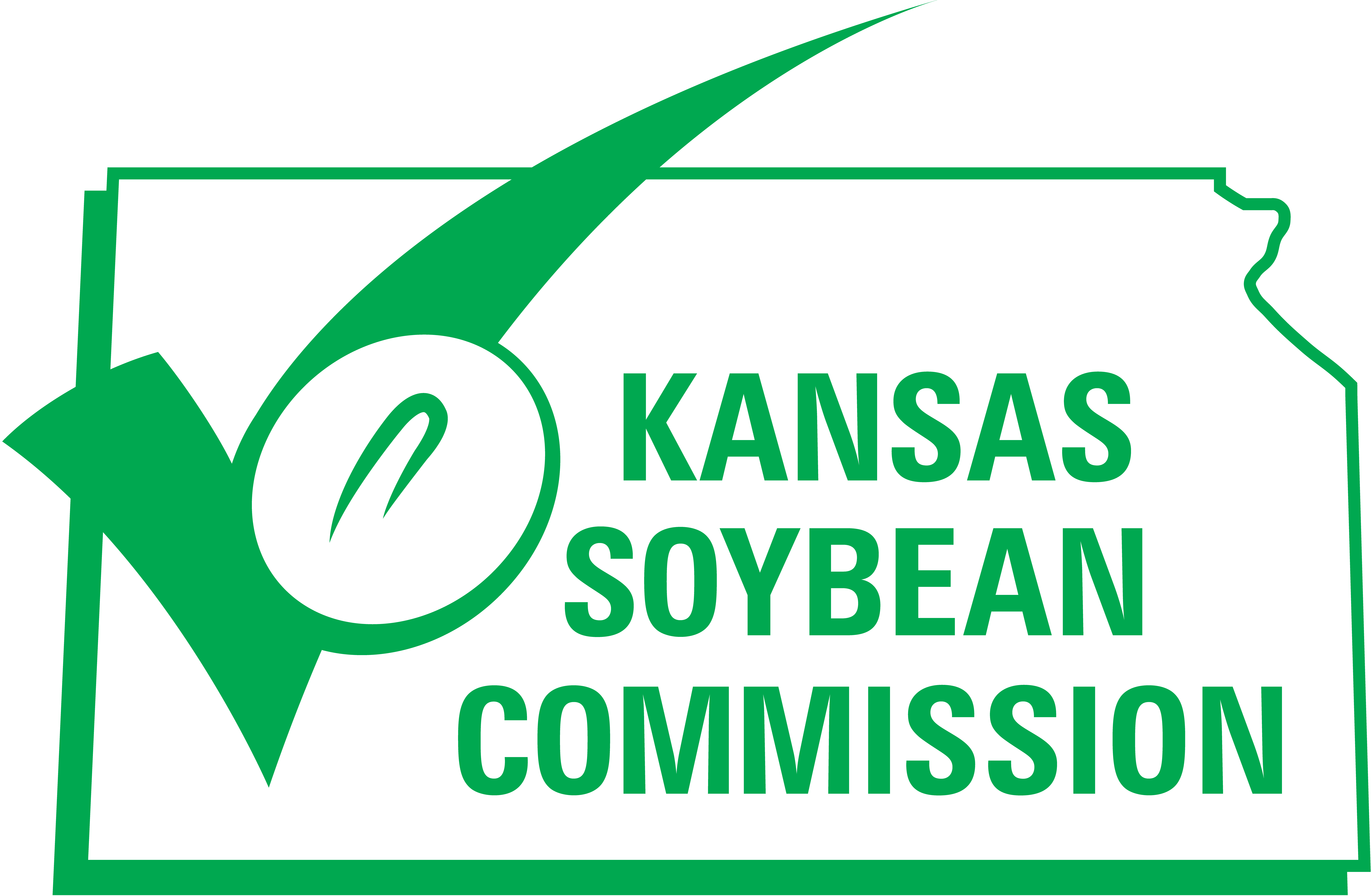Commission work grows demand for soybeans
Funding research projects embellishes ROI of the soybean checkoff
The Kansas Soybean Commission is led by nine elected volunteer farmers, who make decisions that improve profit potential for all soybean farmers. Whether they are increasing crop demand or helping improve the farmers’ production practices, the ultimate goal of the Commission is to make the most valuable soybean crop possible.
As the Commission chairman, Bob Haselwood, Berryton, explains, “Anything the Commission invests the checkoff dollars into will help farmers’ bottom line.”
All soybean farmers participate in the checkoff. The dollars are collected from the farmer through the first purchaser – including elevators, processors, seed dealers or others – one-half of one percent of the value of the soybeans when they are sold. Half of the collection is sent to the United Soybean Board and the remaining half stay in Kansas to be invested by the Commission.
Every year, KSC seeks requests for funding proposals for the following fiscal year. When those proposals are submitted, the Commissioners study the proposals, hear from the lead investigator and decide which projects they feel will be the best investment of the checkoff dollars. The Commission may look at a proposal and request that the researcher adjust their research to fit with the most important problem that a Kansas Soybean farmer may be facing. All of these funding decisions are based on the amount of checkoff dollars the Commission estimates on collecting during the year. Not only does the Commission invest dollars on production research, but increasing demand for soybeans, through international market development, biodiesel expansion, and related projects are also prioritized.
According to Haselwood, KSC’s decisions may be based on the projects that come in and how well some of those projects performed in the past. An impactful investment Haselwood has seen is the production research that has helped expand the soybean acres in Kansas.
Thanks to the research projects that have improved soybean production, the total production of soybeans in Kansas have nearly doubled in the last decade to reach 190 million bushels in 2020. The checkoff can also help to bring a new product to market quicker which in turn helps the soybean demand. Having such a wide variety of profitable opportunities creates a balancing act on how the dollars are invested, often making it a difficult decision for the Commissioners.
